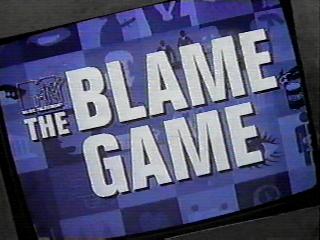 AMPHITRYON: Sollicita tanti pretia natales habent, semperque magno constitit nasci deum.LYCUS: Quemcumque miserum videris, hominem scias.AMPHITRYON: Quemcumque fortem videris, miserum neges.AMPHITRYON: Disquiet is the price of such high births.LYCUS: If you see someone wretched, you know him to be man [as opposed to god].AMPHITRYON: If you see someone valiant, you must deny that he is wretched.
AMPHITRYON: Sollicita tanti pretia natales habent, semperque magno constitit nasci deum.LYCUS: Quemcumque miserum videris, hominem scias.AMPHITRYON: Quemcumque fortem videris, miserum neges.AMPHITRYON: Disquiet is the price of such high births.LYCUS: If you see someone wretched, you know him to be man [as opposed to god].AMPHITRYON: If you see someone valiant, you must deny that he is wretched.-Seneca's Hercules (461-464, TRAG I-87)
The tyrant Lycus has murdered Hercules' father-in-law, stolen the father-in-law's kingdom and is trying to convince Hercules' wife to marry him, as Hercules is in Hades, the realm of Pluto. Lycus argues with the foster-father of Hercules, interestingly enough, concerning theology.
Lycus makes a statement that is easily identified as pertaining to the "theology of glory." He says: "If you see someone wretched, you know him to be a man." This he argues as proof that a wretched man cannot be a god, nor can such a man be considered for divinization (remember that the pagan pantheon included many divinized characters). In the mind of Lycus, divinity is attended by power and glory and never by wretchedness. In another part of the argument, Lycus even says that it is blasphemy against Jove/Jupiter to suggest that he could father a human child. You put it together.
The real rub, however, is not Lycus. He is presented as a buffoon and a foil for Amphitryon. No, the interesting thing is the turn that Amphitryon's theology takes after the fairly promising opening to this excerpt. In response to Lycus' obvious theology of glory, Amphitryon does not affirm the wretchedness that he suggested to rightly attend deity. No. Amphitryon instead denies the wretchedness altogether.
The subtler theologian of glory will never embrace divine wretchedness without promptly erasing it.I think Seneca's tragedy presents an amazing window into the mind of the theologian of glory. On the one hand, such a person will actually embrace the wretchedness of Christ. On the other hand, the same person will miraculously transform this wretchedness into something other than wretchedness (like water into wine). End result: Wretchedness of Christ - 0, Glory of Christ - 1.
You might be thinking something like, "Well, the glory of Christ DID win out on Easter Sunday. Jesus Christ is seated at the right hand of the Father, isn't He?" Ah, now you've hit the mark!
The theologian of glory does not overcome the wretchedness of Christ through resurrection, but through theological "sleight of hand."The theologian of glory, like Amphitryon, looks at Christ suffering on the cross on Good Friday and ignores the pain and weakness, instead emphasizing the divinity of such endurance. They look "through the suffering" and presume to see the glorious nature of Christ. "Where there is such fortitude, such valour, such strength of will," they say, "there is no wretched man."
What does the theologian of the cross say to Lycus' argument? When someone suggests that wretchedness and divinity are mutually exclusive, we say, "No they aren't. Look at Christ." As fans of
www.realultimatepower.net, we might say:
"Whoever told you that is a complete liar! Jesus Christ can be both wretched AND totally divine." We don't try to explain away the wretchedness into something less offensive. We don't trump Christ's wretchedness with His valour and resolve. We confess Him to be God stricken, God smitten, and God afflicted - in the flesh. We confess Him to be sin condemned in the flesh - for us. We confess three truly wretched days (no glory to be found in evidence anywhere) from Good Friday to Easter Sunday.
We can confidently cling to Christ as God for us
precisely because He shows us the wretched God.
Christ ressurected vindicates our God as the one who lifts up the lowly, not the one who lifts up the lowly-but-really-magnificent-in-valour-in-spite-of-suffering. In the resurrection of Christ we find the reason for our confidence: God saves the lowly, the sinner, the truly wretched. Having become sin incarnate on the cross, how little does my sin appear compared to Christ's. He is more wretched, more despised, more lowly than I can ever become.
The theologian of glory seeks to transform the wretchedness of the God-man into glory-disguised-as-wretchedness. To use Aristotelian terms: the theologian of glory ascribes to the crucified Lord the accidence of wretchedness but the substance. The theologian of the cross simply confesses Christ to be wretched.
This Easter season, we celebrate the Resurrection of the Truly Wretched One, and look forward with confidence to the resurrection of all truly wretched ones, each gladly confessing: "Among sinners I am the chief."
-Lucilius
There is therefore now no condemnation for those who are in Christ Jesus. For the law of the Spirit of life has set you free in Christ Jesus from the law of sin and death. For God has done what the law, weakened by the flesh, could not do. By sending his own Son in the likeness of sinful flesh and for sin, he condemned sin in the flesh, in order that the righteous requirement of the law might be fulfilled in us, who walk not according to the flesh but according to the Spirit.-Saint Paul to the Romans (8:1-4, ESV)
 Sunt quaedam nocitura impetrantibus, quae non dare sed negare beneficium est; aestimabimus itaque utilitatem potius quam voluntatem petentium.
Sunt quaedam nocitura impetrantibus, quae non dare sed negare beneficium est; aestimabimus itaque utilitatem potius quam voluntatem petentium.


















